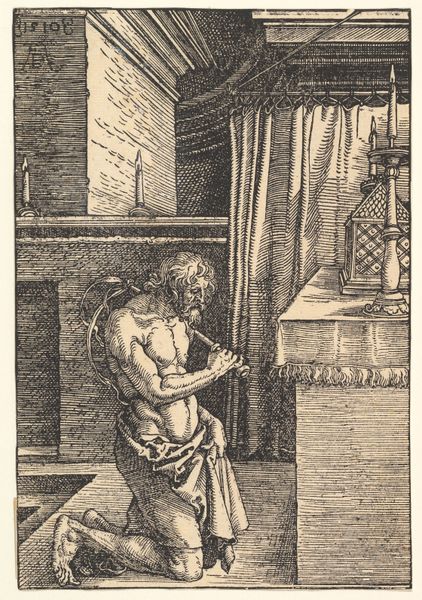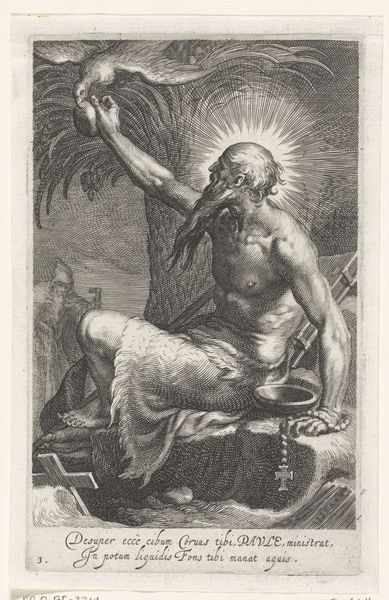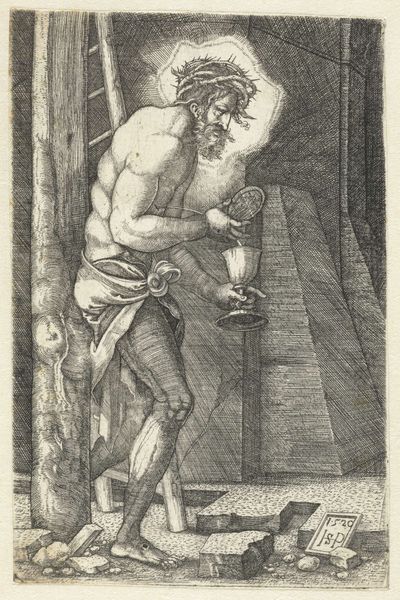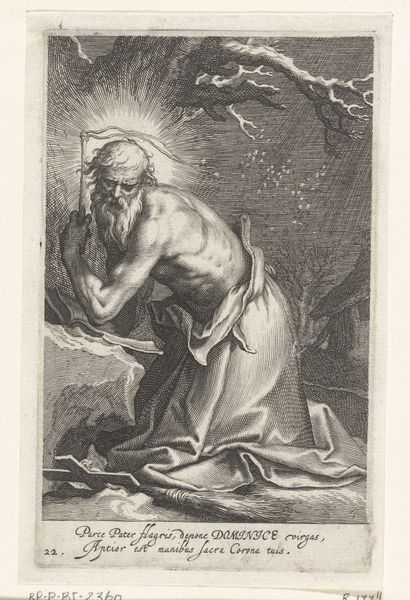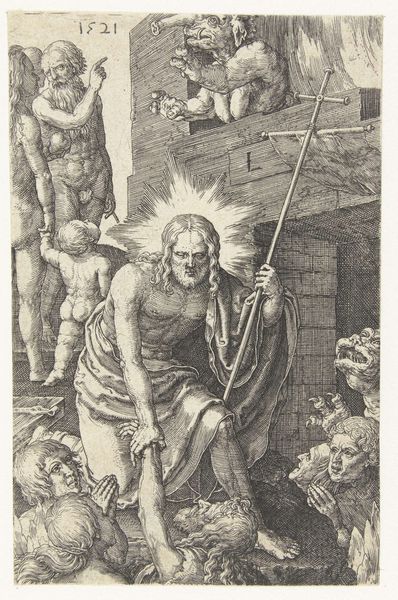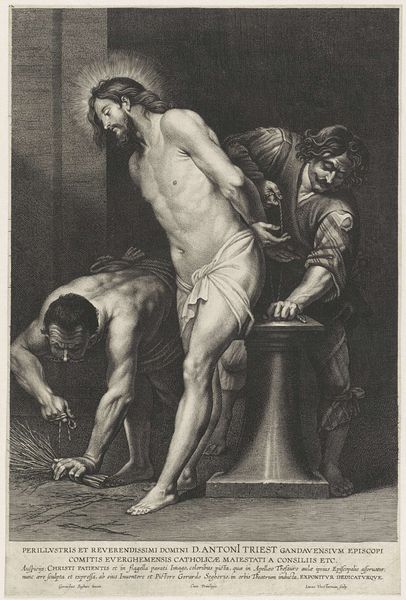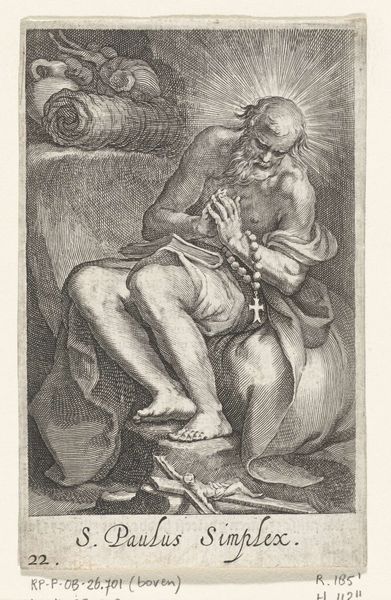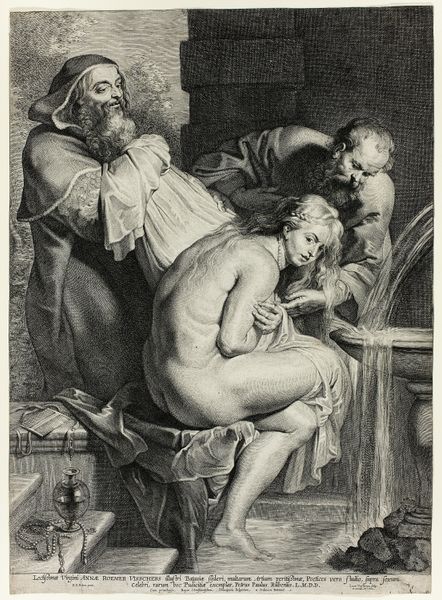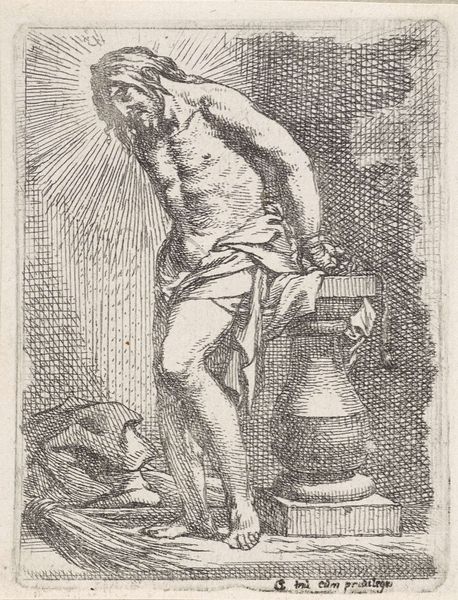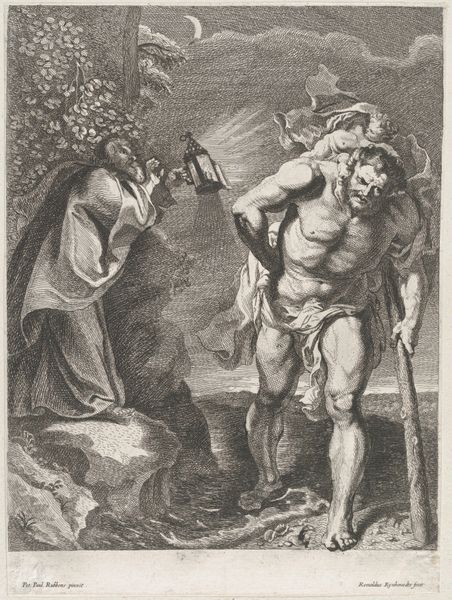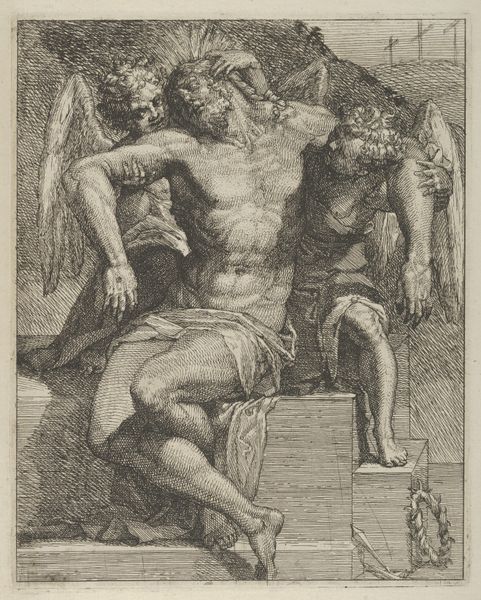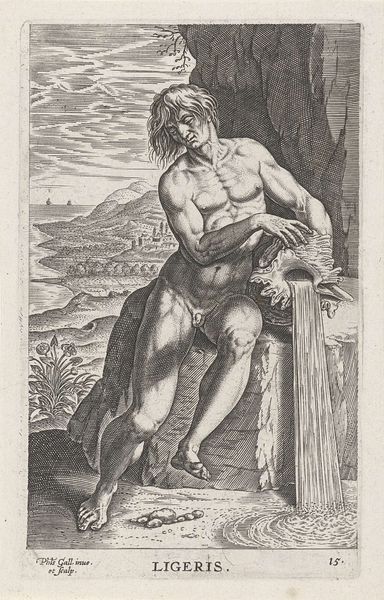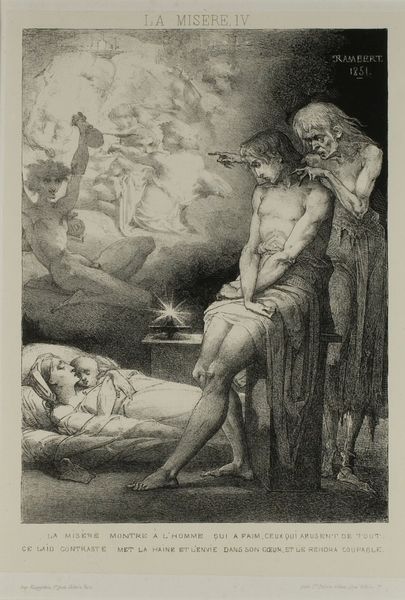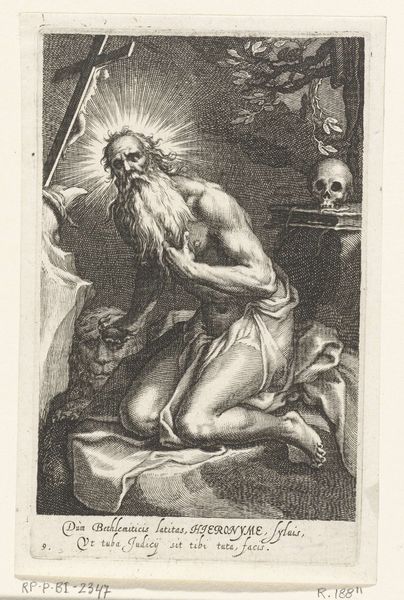
print, etching, engraving
#
narrative-art
#
baroque
# print
#
etching
#
figuration
#
history-painting
#
engraving
#
realism
Dimensions: height 295 mm, width 218 mm
Copyright: Rijks Museum: Open Domain
This print, "Christ at the Column", was made by Jacob Matham around the turn of the 17th century, using engraving. This is an intaglio process – meaning the image is incised into a metal plate, ink is applied, and then the surface is wiped clean, leaving ink only in the recesses. The printmaker then applies strong pressure to transfer the ink to paper. The final result is a testament to skilled labor and craft. Look closely, and you'll see how the varying depths and densities of lines create a full tonal range, from bright highlights to deep shadows. Notice how the light seems to emanate from Christ’s body. But of course, it also signifies the suffering of its subject. By using the reproducible medium of printmaking, Matham ensured that this image, with all its political and religious implications, could be widely disseminated. He knew the power of images, skillfully crafted, to move hearts and minds.
Comments
No comments
Be the first to comment and join the conversation on the ultimate creative platform.
